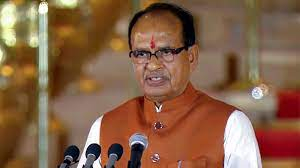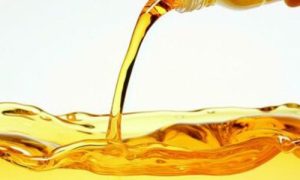Shivraj Singh Chouhan expresses concern over surge in edible oil imports

India’s agriculture minister, Shivraj Singh Chouhan, expressed concern over the country’s heavy reliance on edible oil and pulse imports, stressing the need for self-sufficiency. While recent import duty cuts aim to control inflation and boost supply, farmer groups warn these moves hurt local producers. The government seeks a balance between protecting farmers and ensuring stable consumer prices.
India imports around 57% of its edible oils – palm, soybean and sunflower consumption of around 25 million tonne (MT) while around 15-18% of pulses consumption is met through imports. (Reuters)
India should not ideally be importing edible oils, agriculture minister Shivraj Singh Chouhan said on Tuesday, indicating his ministry’s concerns over keeping low import duties on these items.
An influx of edible oil imports could adversely impact Indian farmers by restricting their pricing power.
The government would take a balanced approach keeping in consideration the interest of farmers and consumers while reducing and abolishing import duties on oilseeds and pulses, Chouhan said. “Ideally we should not be importing these commodities and we are working towards achieving self-sufficiency in oilseeds and pulses,” Chouhan said.
On May 30, the government announced reduction in effective effective import duties – including basic customs duty and cess – on soybean and sunflower to 16.5% from 27.5%. Similarly to boost domestic supplies, the government extended duty-free import of yellow peas and arhar, varieties of pulses, till the end of FY26.
Official sources said that while the government is aiming to boost output of oilseeds and pulses, which the country imports in significant quantities, the cut in import duty allows cheaper imports and brings down the domestic prices.
India imports around 57% of its edible oils – palm, soybean and sunflower consumption of around 25 million tonne (MT) while around 15-18% of pulses consumption is met through imports.
“We need to create a balance between providing remunerative prices to farmers and keeping consumer prices stable. As we are not self-sufficient in pulses and oilseeds, if we do not import it would create problems,” Chouhan had earlier said in an interview to the FE.
Sources said the reduction in duty was because of a sharp rise in prices of edible oils in the recent months, while retail inflation in ‘oils and fats’ category was highest in the food basket at 17.42% in May on year.
However, the basic custom duty on refined oils remains unchanged at 32.5%.
Meanwhile, industry associations – Solvent Extractors Association of India (SEA) and Indian Vegetable Oil Producers’ Association (IVPA) have stated that the government move to reduce import duty will restrict import of refined oils and boost domestic processing,
However, Soybean Processor Association of India (SOPA) has questioned the government’s move to reduce import duties after significantly increasing the minimum support price of kharif oilseeds – soybean and groundnut aimed at boosting output.
“Duty reduction on edible oils, a step against local crushing and farmers. It helps the import lobby at the cost of industry, and will be a huge setback for the goal of self-sufficiency in edible oils,” D.N. Pathak, executive director, SOPA, said.
“Unrestricted import of cheap pulses will have adverse impact on domestic prices and farmers and calls for a review of trade policy regarding pulses,” the commission for agricultural costs and prices (CACP) in its report on price policy for kharif crops 2025-26 season. The CACP has stated in order to reduce dependence on imports, India also needs to encourage domestic production of pulses, particularly tur/arhar and urad in kharif season at massive scale along with strengthening of procurement mechanism.
To Read more about Edible Oil News continue reading Agriinsite.com
Source : Financial Express














